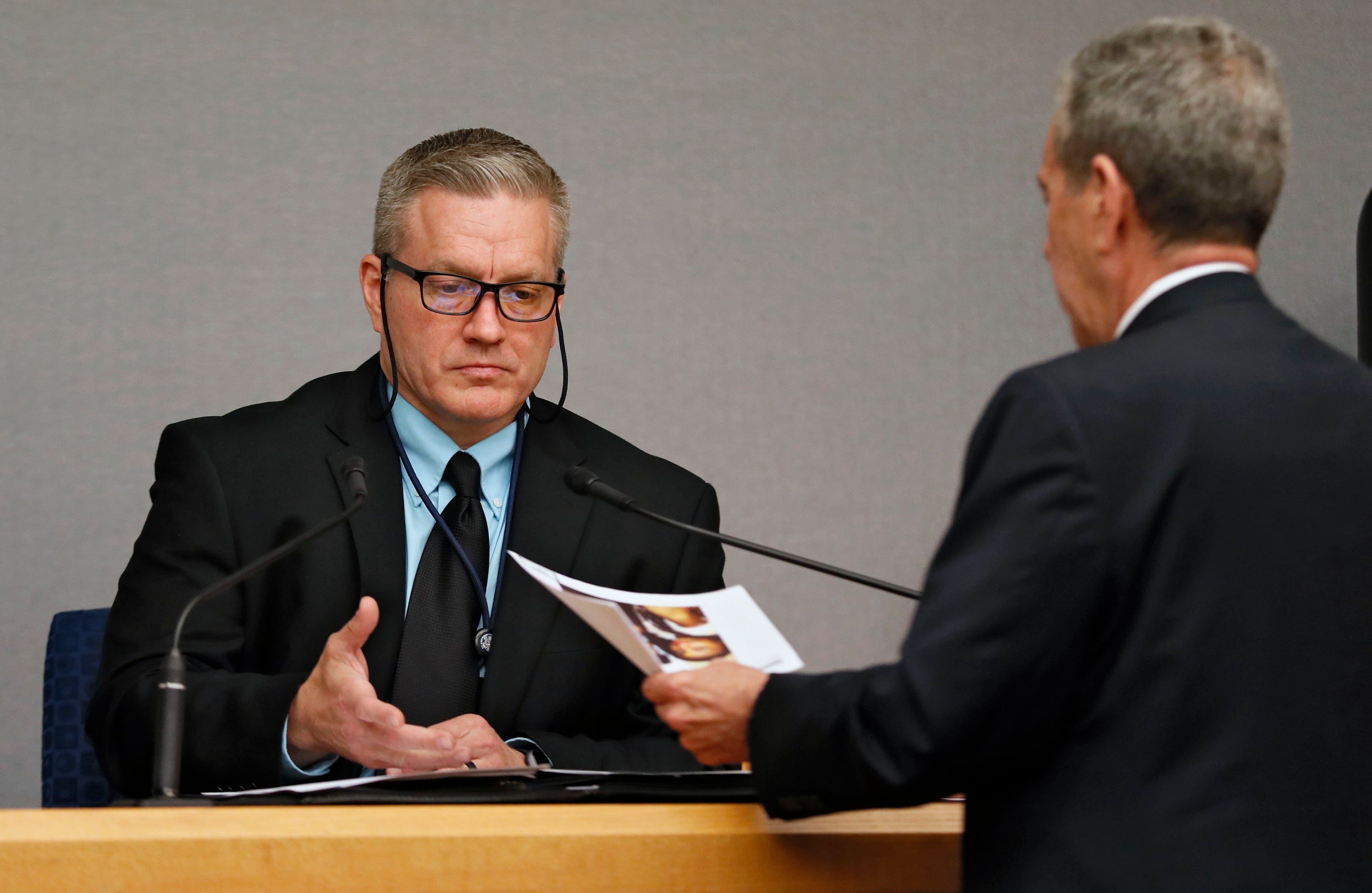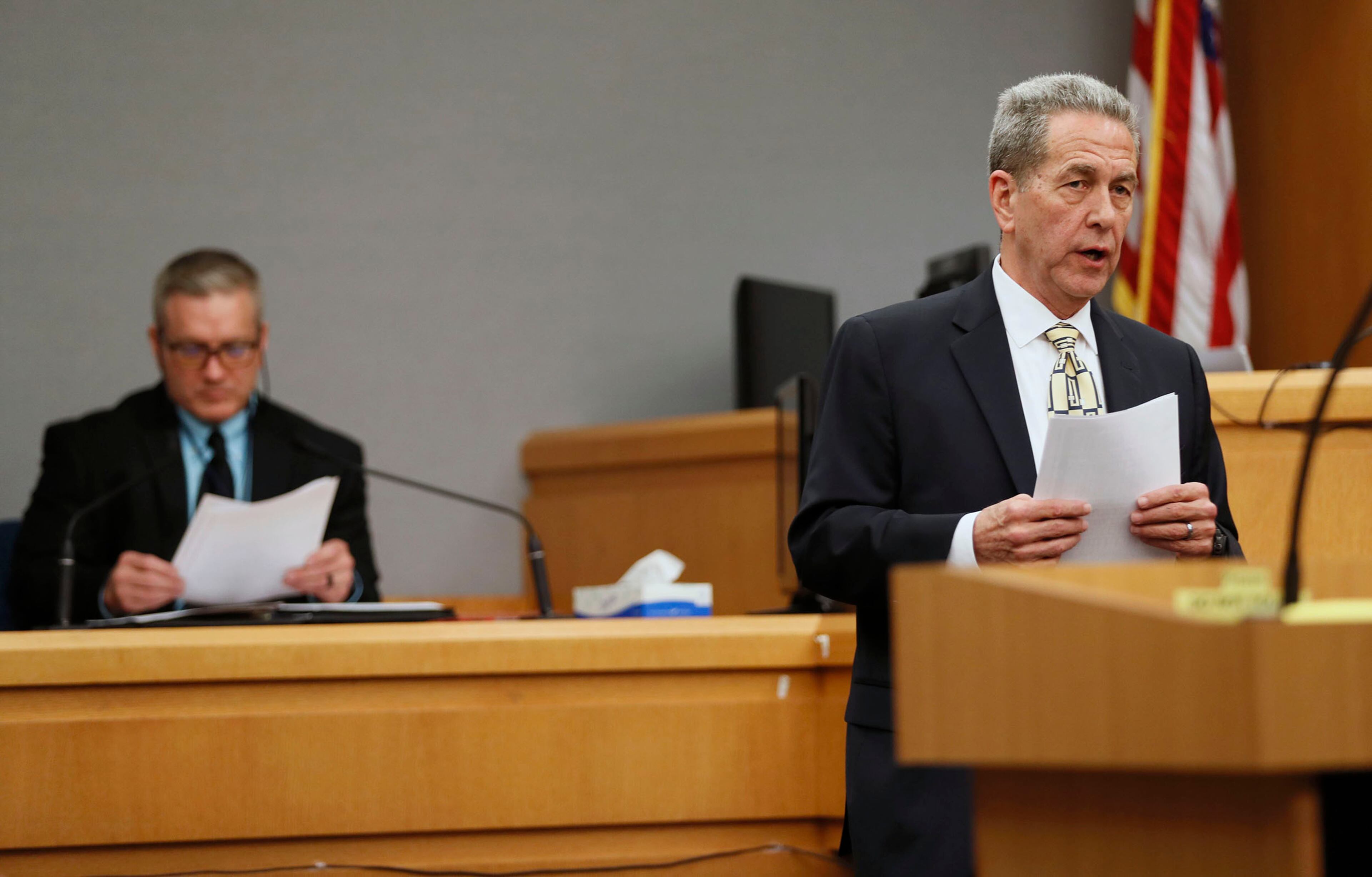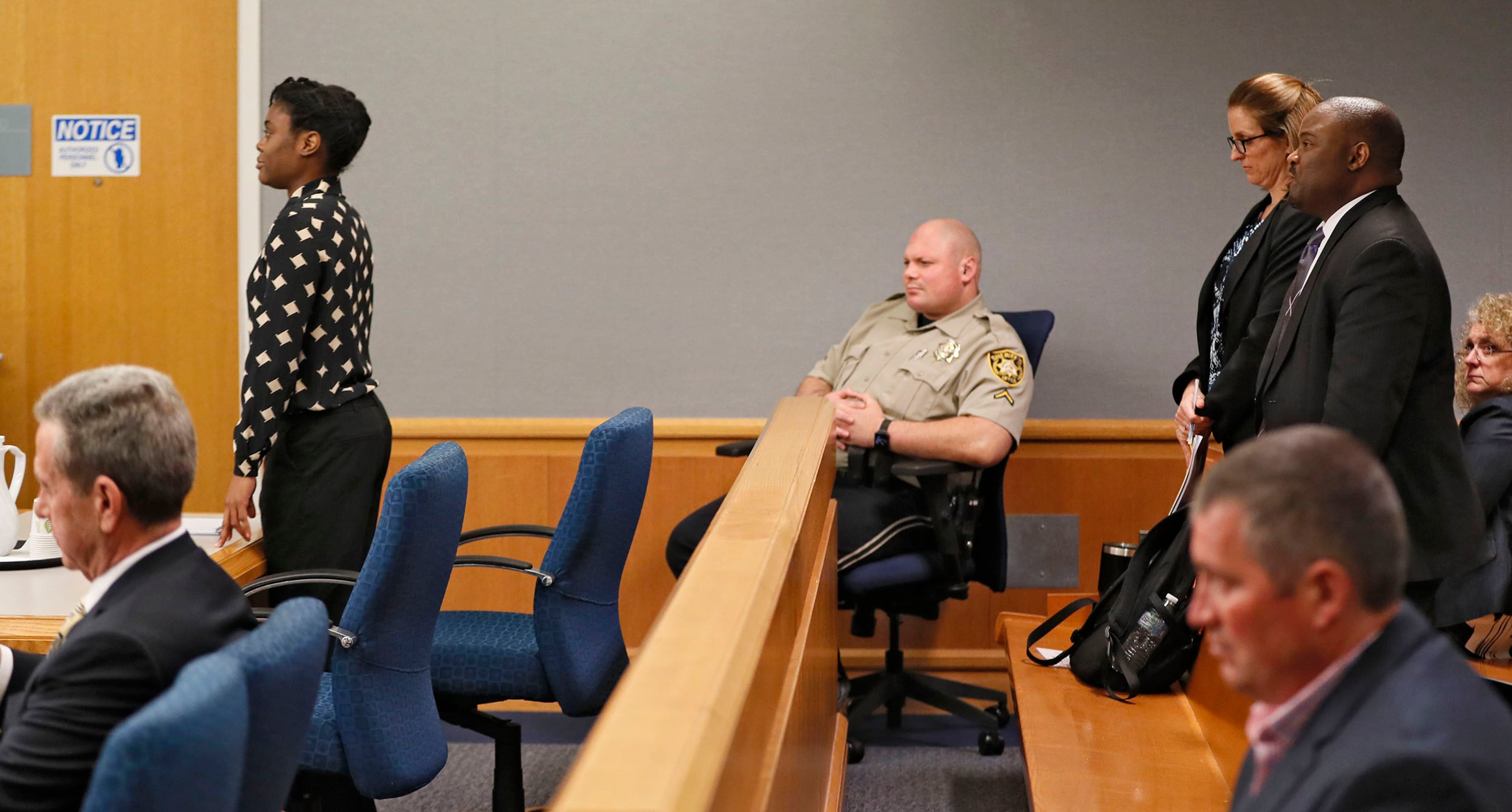Moss murder trial, Day Three: State rests, defendant does nothing




















Tiffany Moss on Friday continued to do absolutely nothing to defend herself as she represents herself as her own lawyer while facing a death penalty prosecution.
After the state rested its case, Moss told Gwinnett County Superior Court Judge George Hutchinson she did not wish to testify. When Hutchinson brought jurors back into the courtroom, he asked Moss to call her first witness.
“No witnesses,” Moss replied.
To which Hutchinson then told the jury, “The defense rests.”

Jurors have heard nothing from Moss, except for her saying she had no questions for any of the prosecution's 18 witnesses. She gave no opening statement and lodged no objections.
Closing arguments — or, most likely, one single argument by the prosecution — are scheduled for Monday morning.
Moss, 36, is charged with starving her 10-year-old stepdaughter Emani to death. She is also accused of trying to conceal the death by burning Emani’s body in a galvanized trash can in a remote area of Gwinnett County.
The state’s last witness was Dr. Michele Stauffenberg, the medical examiner who conducted Emani’s autopsy after police found her body on Nov. 2, 2013. She determined the cause of death was starvation.
Emani weighed 32 pounds at the time of her death, when most children her age weigh between 54 and 103 pounds, Stauffenberg said.
“She was more or less skin and bones,” Stauffenberg testified. “She was extremely thin and emaciated. She had a starved look.”

Prosecutor Lisa Jones then presented more than a dozen autopsy photos to Moss at the defense table, turning them over one by one so Moss could see them before they were put into evidence. Moss looked stricken as she gazed at the photos. When Jones was finished, Moss closed her eyes and put her head down.
As Jones displayed the photos one by one on a screen on the courtroom wall, Moss never once looked up at them. Jurors were noticeably disturbed by the images of the emaciated, charred body. Some covered their eyes, while others wiped away tears.

Earlier, lead homicide investigator Colin Flynn recounted his interview with Eman Moss, Emani's father and Tiffany Moss' husband. Eman Moss was also charged with the murder of his daughter. He pleaded guilty, was sentenced to life in prison without parole, and gave devastating testimony against his wife on Thursday.
Flynn encountered Eman Moss on Nov. 2, 2013, after the suicidal father had called 911 and said his daughter was dead. When police arrived, he said Emani died from drinking chemicals.
He also said that because he didn’t know what to do with Emani’s body, he put it in the trash can that was on the other side of the parking lot in his apartment complex. An uncertain police officer then walked to the trash can, opened the lid and saw Emani’s body inside.

Eman Moss was eventually taken to police headquarters and questioned. At one point, Flynn called for a break so he could attend Emani’s autopsy.
After Stauffenberg removed the duct tape from Emani’s body, Flynn testified, it was clear that the father had not told the truth about Emani dying from ingesting chemicals.
Flynn returned to the interview room and confronted Eman Moss with what he’d just seen.
“It was very apparent she was not eating … so the tone of the interview shifted to starvation,” Flynn said.
After that, Eman Moss owned up to what had happened, including admitting that he and his wife had tried to conceal Emani’s death by burning her body, Flynn said.
Also Friday, two capital public defenders, appointed to help Tiffany Moss if she needs it, told Hutchinson that Moss wanted to meet with him in private outside the presence of the prosecution. Hutchinson then asked Moss to tell him why.
“Just, um, certain situation as far as going forward from this point,” she replied.

On Thursday, the standby defenders, Brad Gardner and Emily Gilbert, tried to intervene in the case because Moss was not defending herself. Probably because of this motion, Hutchinson asked Moss on Friday if her request had anything to do with legal representation.
“It would be something I need later, and we’re bringing it up now,” she said vaguely.
Hutchinson then directed Moss to write up a better explanation about what she wanted him to know so he could read it in private.
Moss provided a handwritten note to Hutchinson after the lunch break. The judge read it, then agreed to hold a private hearing with Moss and her standby lawyers. After 15 minutes, they returned and Hutchinson told the courtroom he’d yet to take any action on the matter.

